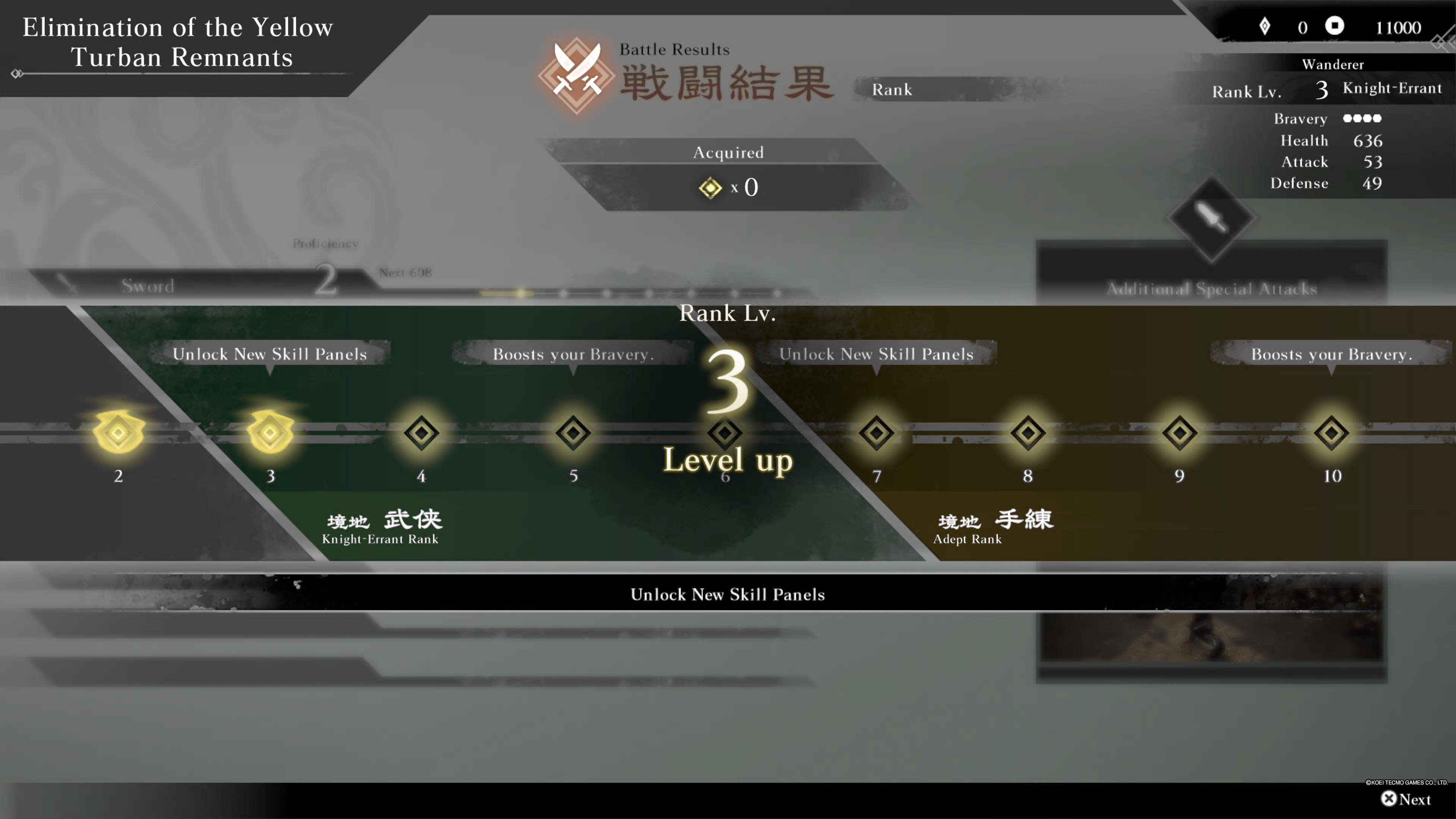Nvidia GeForce RTX 5070 Ti Review
The Nvidia GeForce RTX 5070 Ti: A Budget-Friendly 4K Champion?
The Nvidia GeForce RTX 5090's underwhelming generational leap and hefty price tag left many wanting. However, its younger sibling, the RTX 5070 Ti, offers a more compelling proposition. While not a massive performance jump over its predecessor, its affordability makes it the most sensible Blackwell architecture GPU purchase, especially for those on a tighter budget.
Priced at $749, the RTX 5070 Ti excels as a 4K graphics card, effectively overshadowing the more expensive RTX 5080 (provided you can find either card at its MSRP). It's crucial to note, however, that aftermarket models, like the reviewed MSI variant at $1099, significantly inflate the price, surpassing even the RTX 5080. At its base price, the RTX 5070 Ti is arguably the best graphics card for most users, particularly 4K gamers.
Purchasing Guide:
The Nvidia GeForce RTX 5070 Ti launched February 20, 2025, with a starting price of $749. However, expect significant price variations across different models. While excellent value at $749, its appeal diminishes as the price approaches that of the RTX 5080.
Nvidia GeForce RTX 5070 Ti – Image Gallery
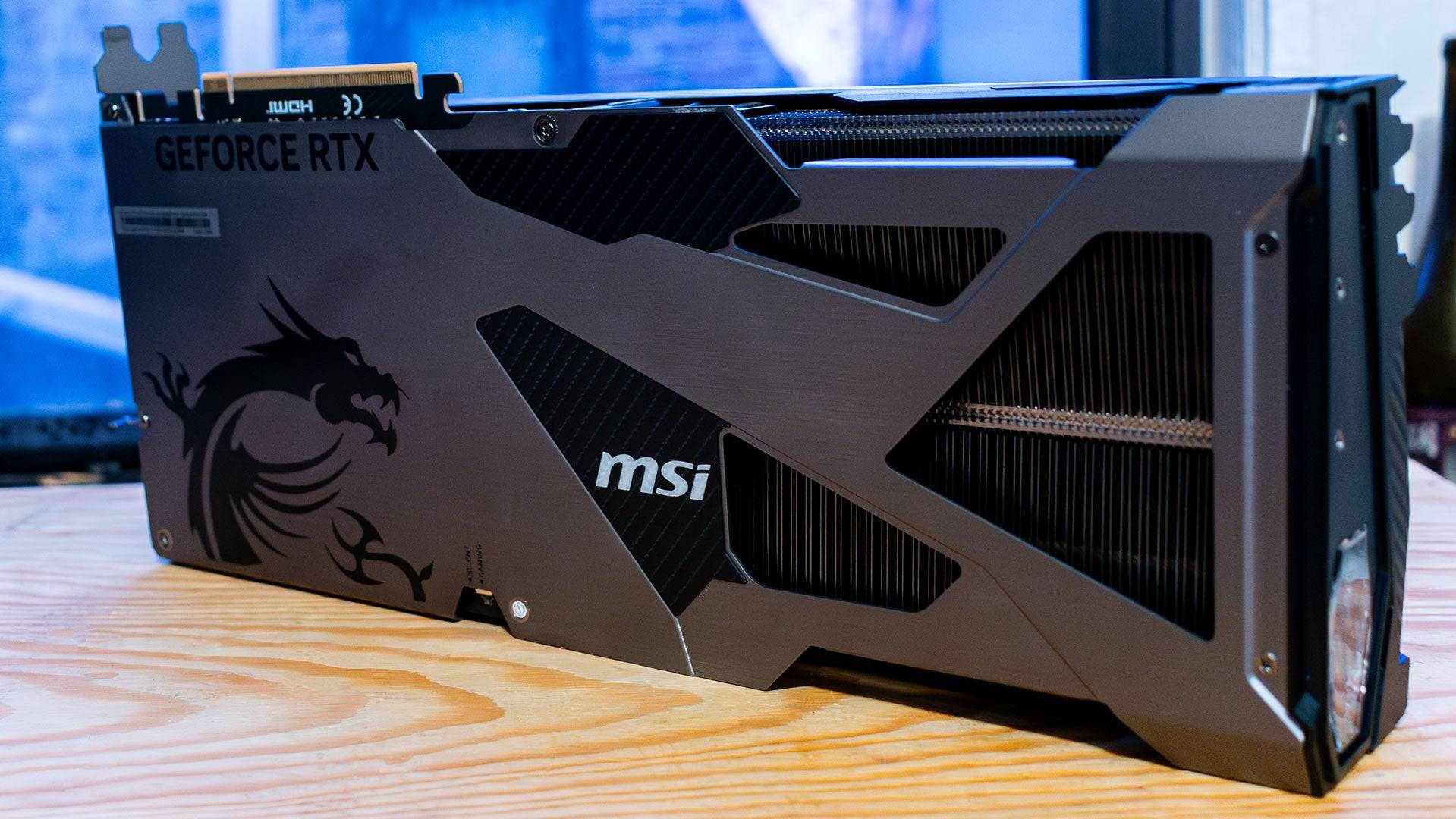
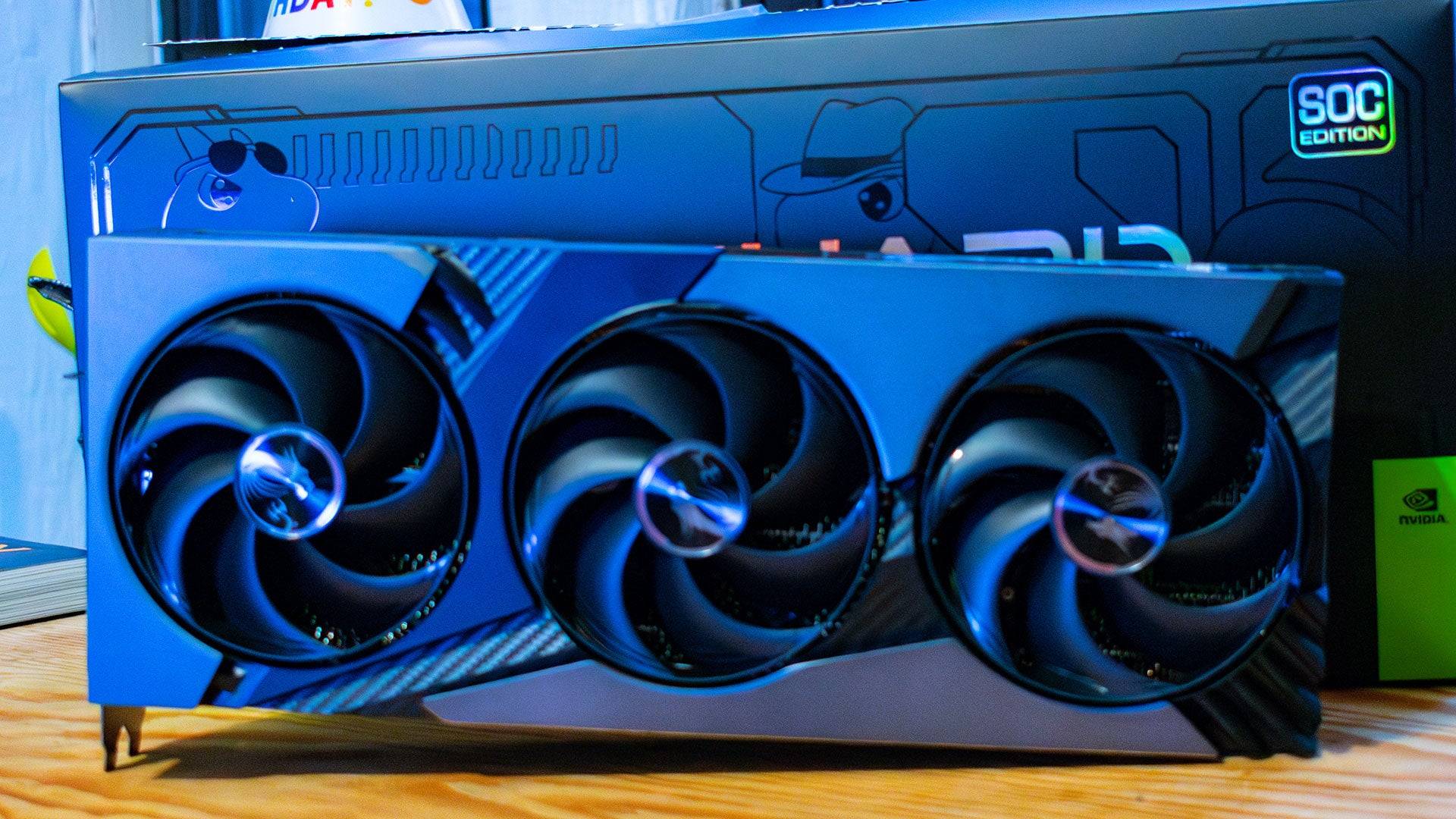 6 Images
6 Images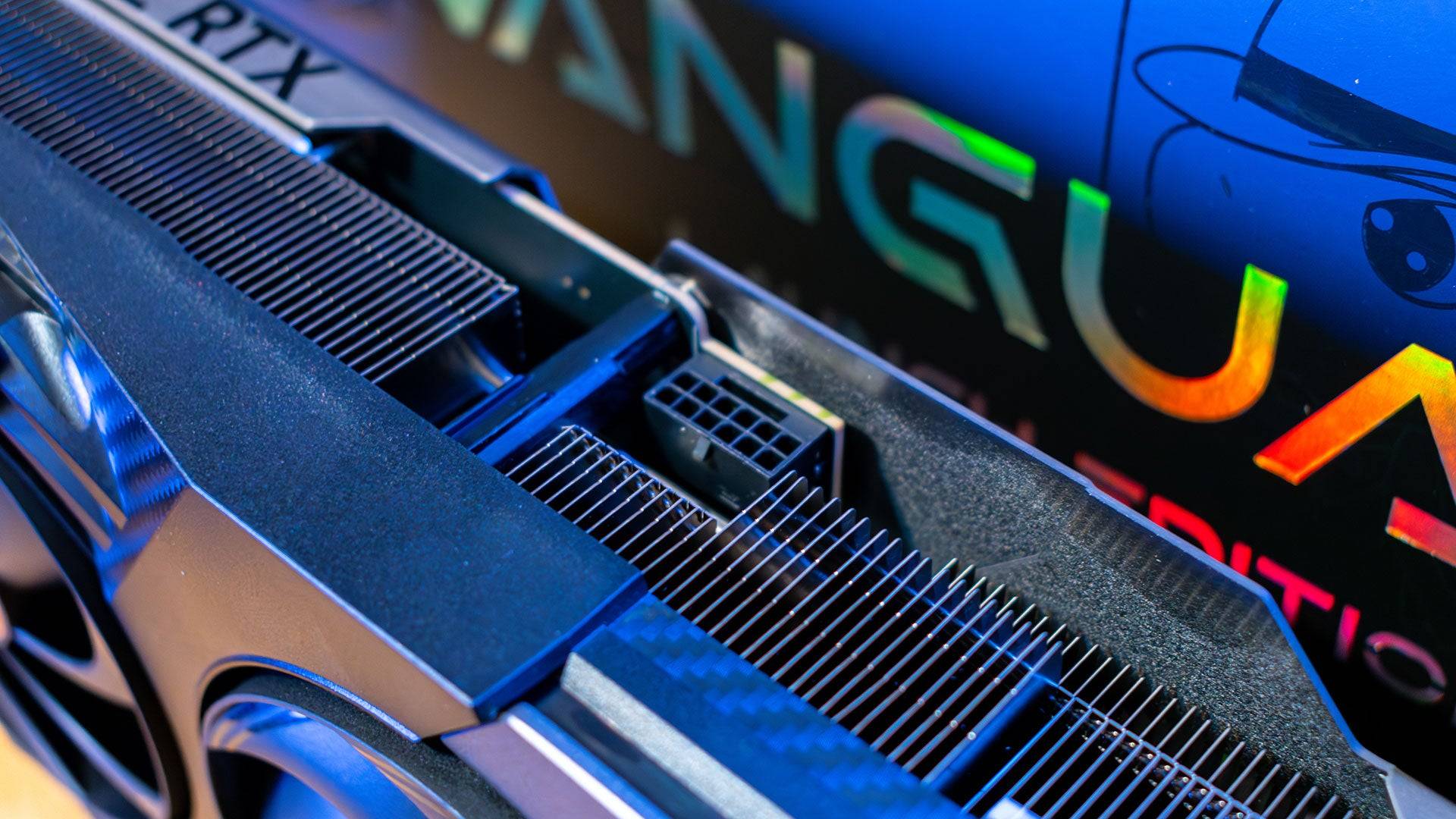
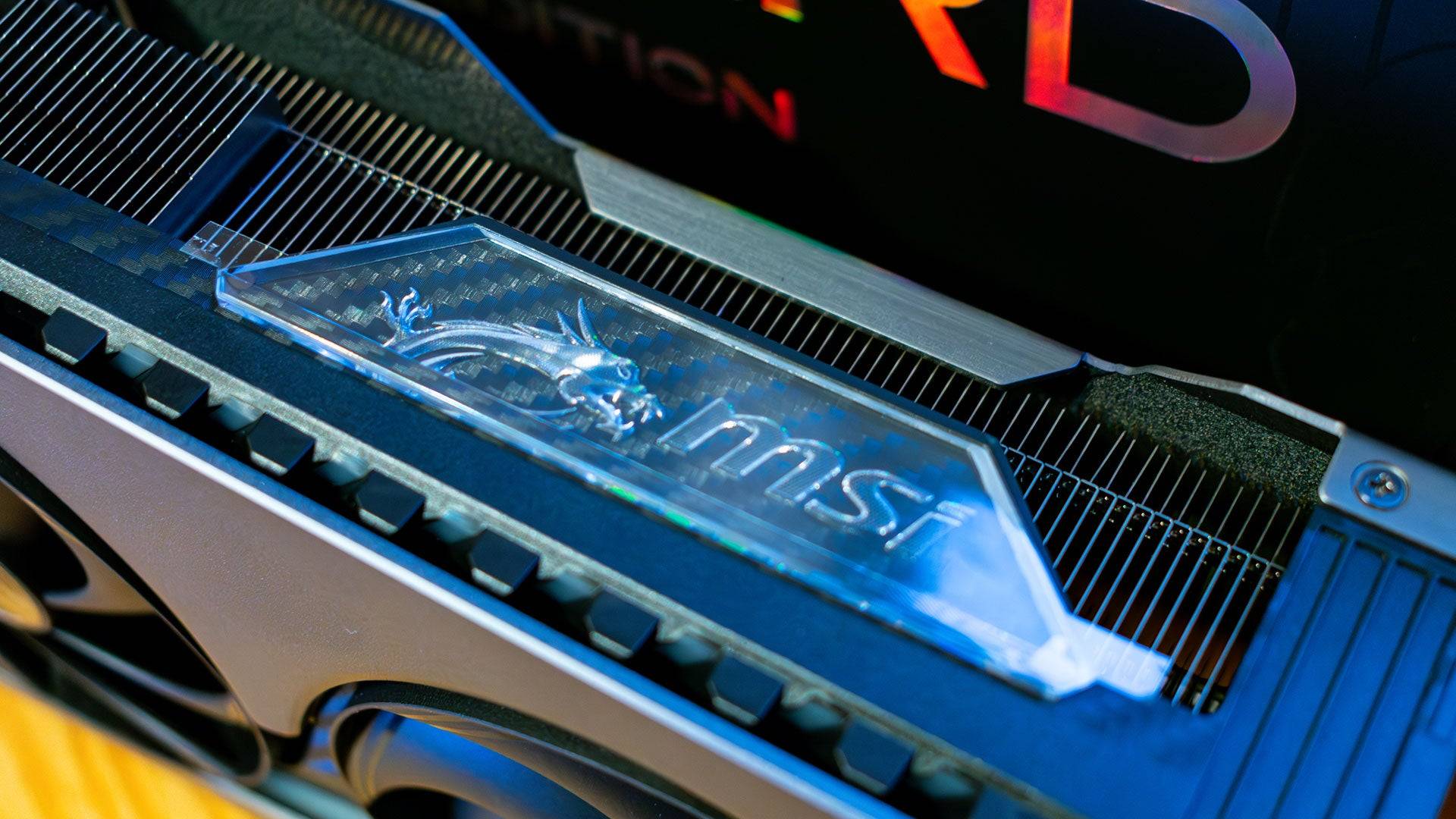
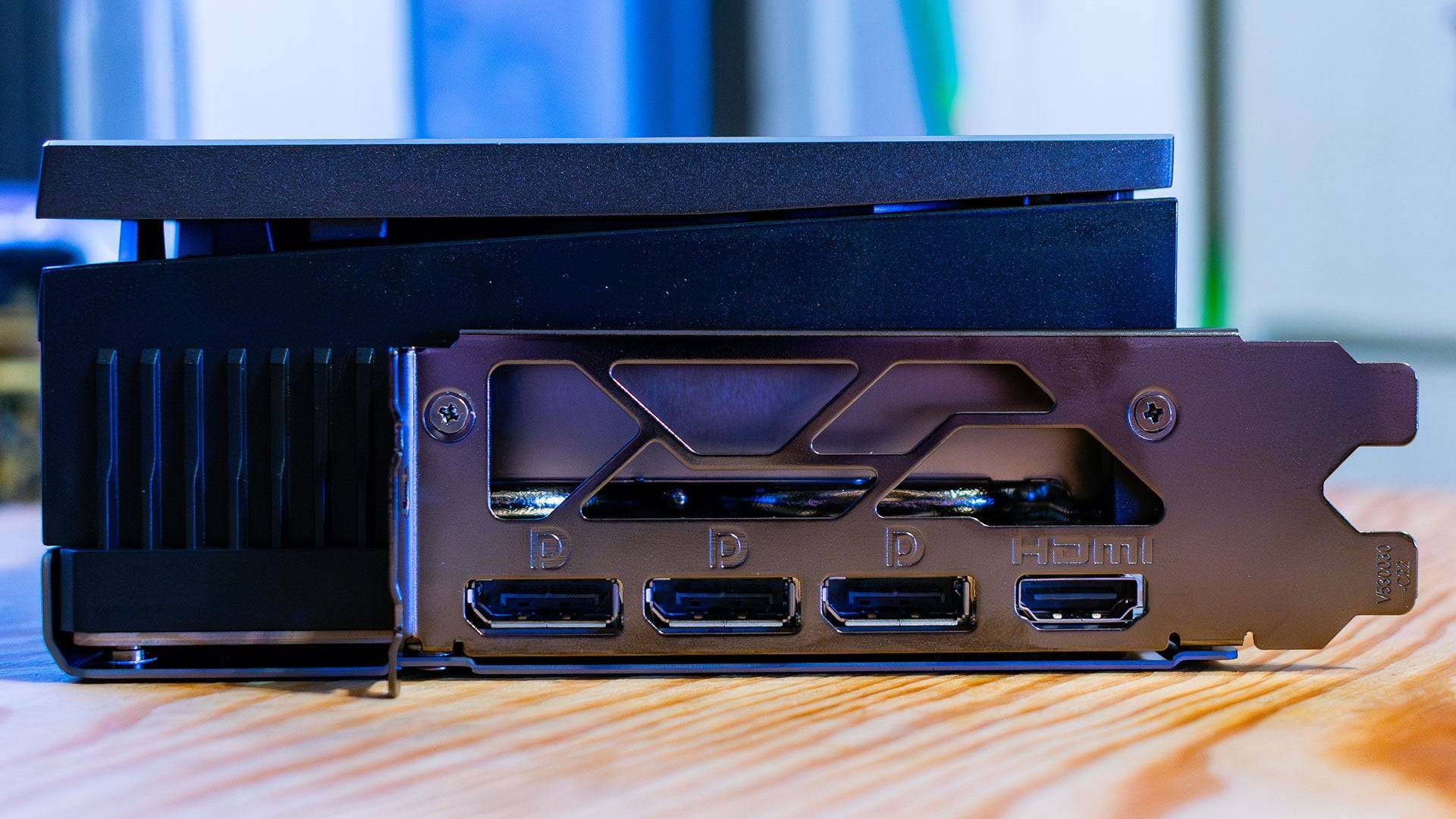

Specs and Features:
The RTX 5070 Ti is the third Blackwell architecture GPU. Originally designed for AI supercomputers, Nvidia adapted it for gaming, retaining its AI capabilities.
Sharing the GB203 GPU with the RTX 5080, it features 70 Streaming Multiprocessors (SMs), resulting in 8,960 CUDA cores, 70 RT cores, and 280 Tensor Cores (14 SMs disabled compared to the RTX 5080). It also boasts 16GB of GDDR7 RAM, albeit slightly slower than the RTX 5080. The Tensor Cores, coupled with a new AI Management Processor (AMP), are key differentiators. The AMP offloads work previously handled by the CPU, significantly improving DLSS and frame generation efficiency.
DLSS 4 leverages a Transformer model instead of a CNN, enhancing image quality and reducing artifacts. Multi-Frame Generation (MFG) produces up to three AI-generated frames per rendered frame, potentially quadrupling frame rates but increasing latency. Nvidia Reflex technology aims to mitigate this latency increase.
With a 300W TDP, the RTX 5070 Ti's power consumption is comparable to the RTX 4070 Ti and RTX 4070 Ti Super. Nvidia recommends a 750W PSU, but an 850W PSU is advisable, particularly for high-end models.

DLSS 4: Is It Worth It?
While faster than its predecessor, the RTX 5070 Ti's main selling point is DLSS 4 and MFG. High refresh rate monitors benefit most, though latency improvements are not dramatic. MFG generates multiple frames based on rendered frames and motion data, potentially boosting frame rates significantly, although rarely a 4x increase. Testing in Cyberpunk 2077 and Star Wars Outlaws showed increased frame rates with minimal latency increases at higher frame rates. Lower frame rates may result in noticeable lag and artifacts.
Nvidia GeForce RTX 5070 Ti – Benchmark Results
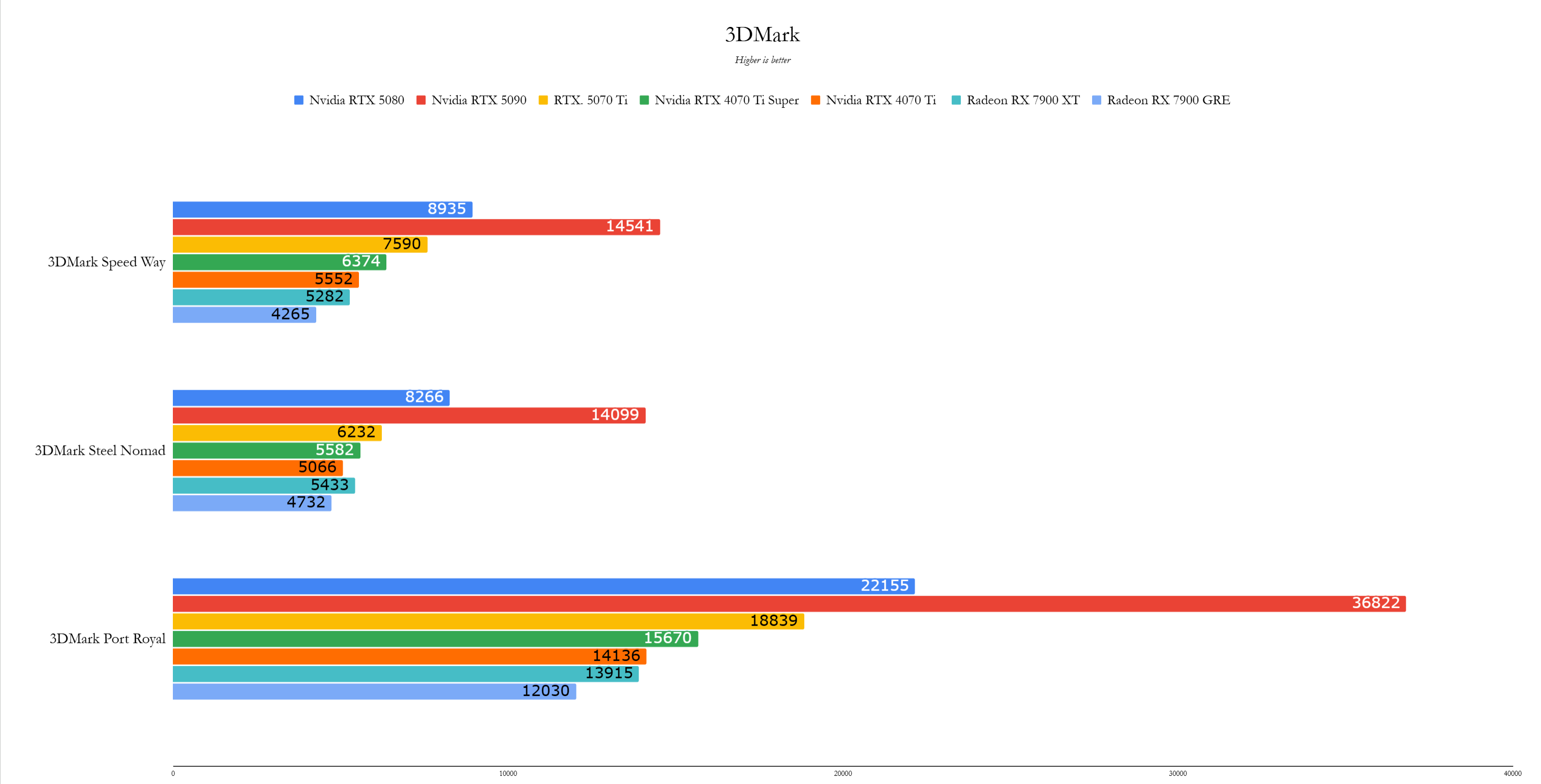
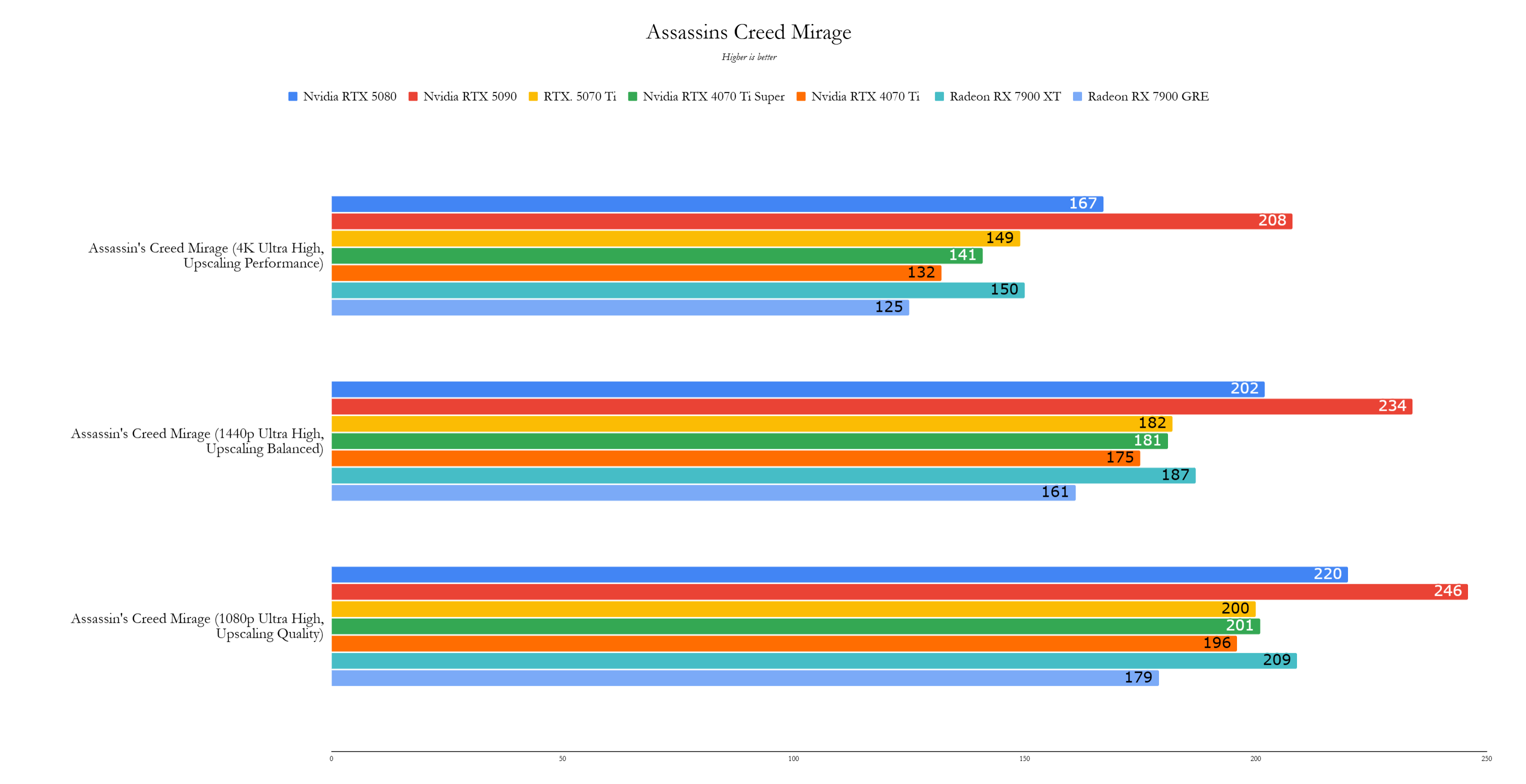 12 Images
12 Images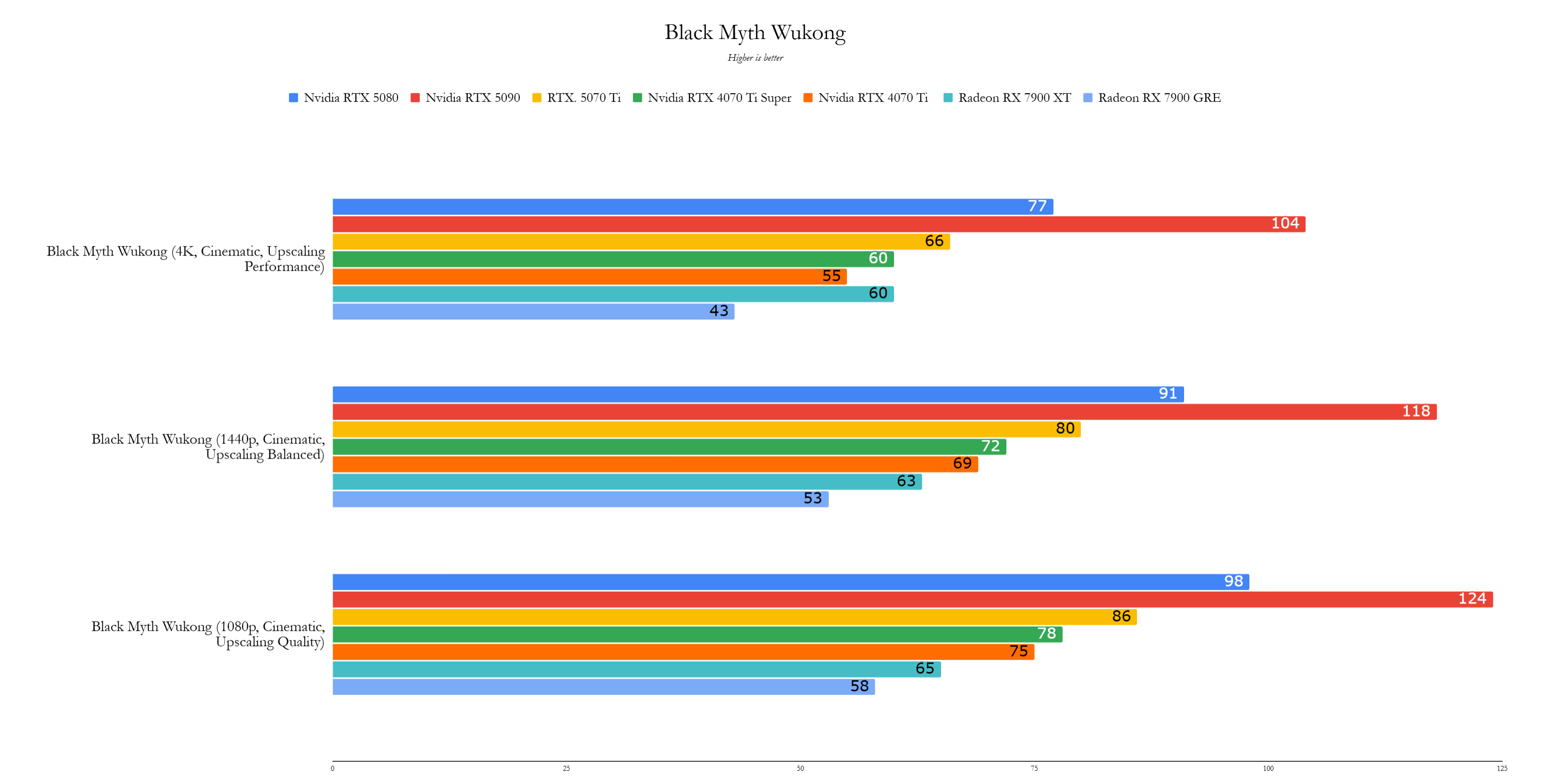
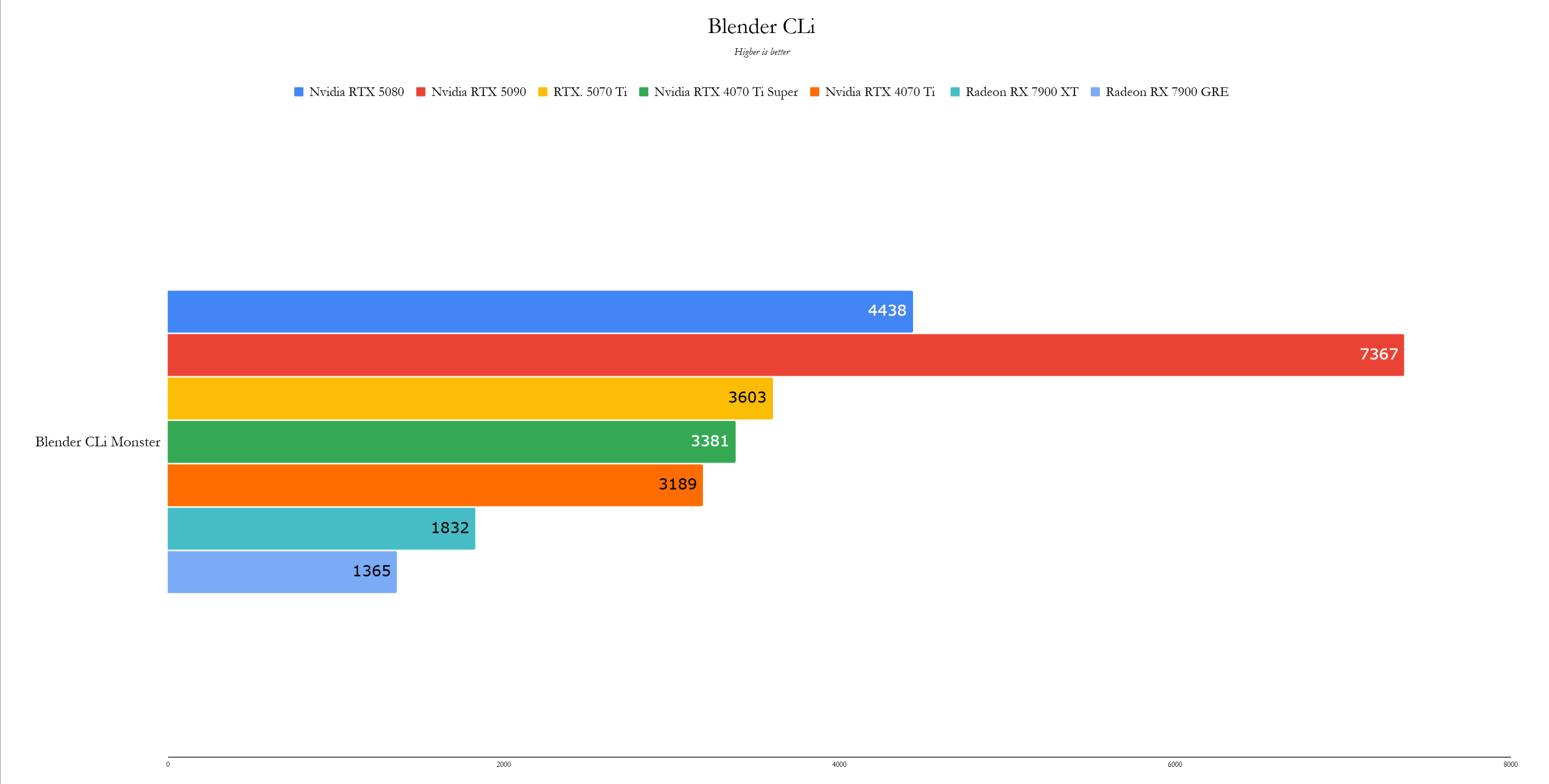
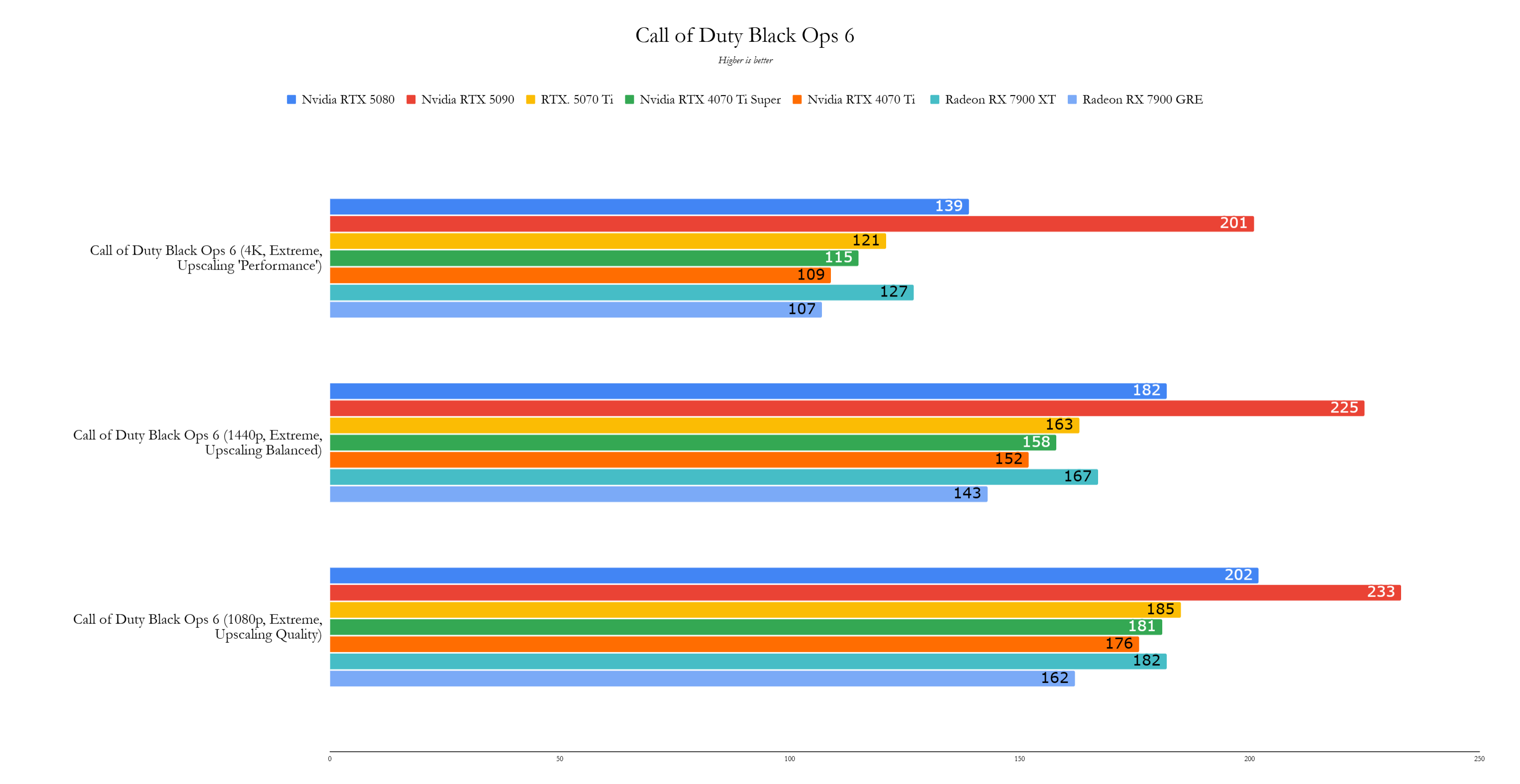
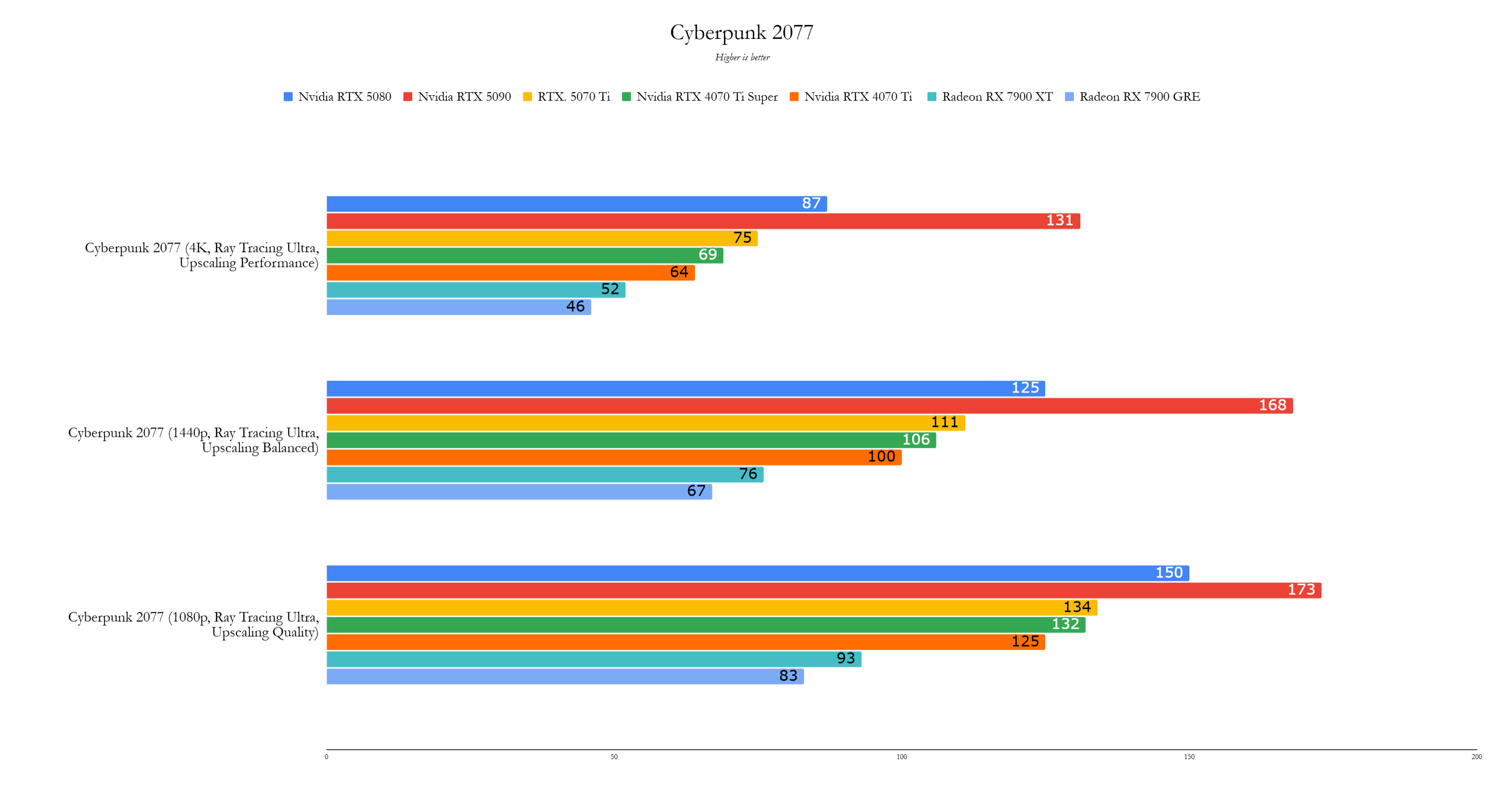
Performance:
At 4K, the RTX 5070 Ti is approximately 11% faster than the RTX 4070 Ti Super and 21% faster than the RTX 4070 Ti. This surpasses the RTX 5080's generational improvement, making it the best value GPU in its generation. Testing across various games consistently achieved over 60fps at 4K, even in demanding titles. The review utilized an MSI Vanguard Edition at stock settings to assess base-level performance. Testing included the latest game versions and drivers. Frame generation and upscaling were used where supported.
3DMark benchmarks demonstrated significant performance gains over previous generations. Game benchmarks showed varied results, with some games exhibiting smaller generational improvements. Total War: Warhammer 3 showcased the RTX 5070 Ti's rasterization potential. Black Myth Wukong and Forza Horizon 5 highlighted its performance in demanding and fast-paced titles respectively.
Conclusion:
The Nvidia GeForce RTX 5070 Ti, at its MSRP of $749, presents exceptional value for a 4K GPU. It offers a substantial improvement over its predecessor at a lower price point than the RTX 4070 Ti. While aftermarket pricing can inflate its cost, at its base price, it's a strong contender for the best value graphics card currently available.









